Countering Municipal Corruption in Bulgaria
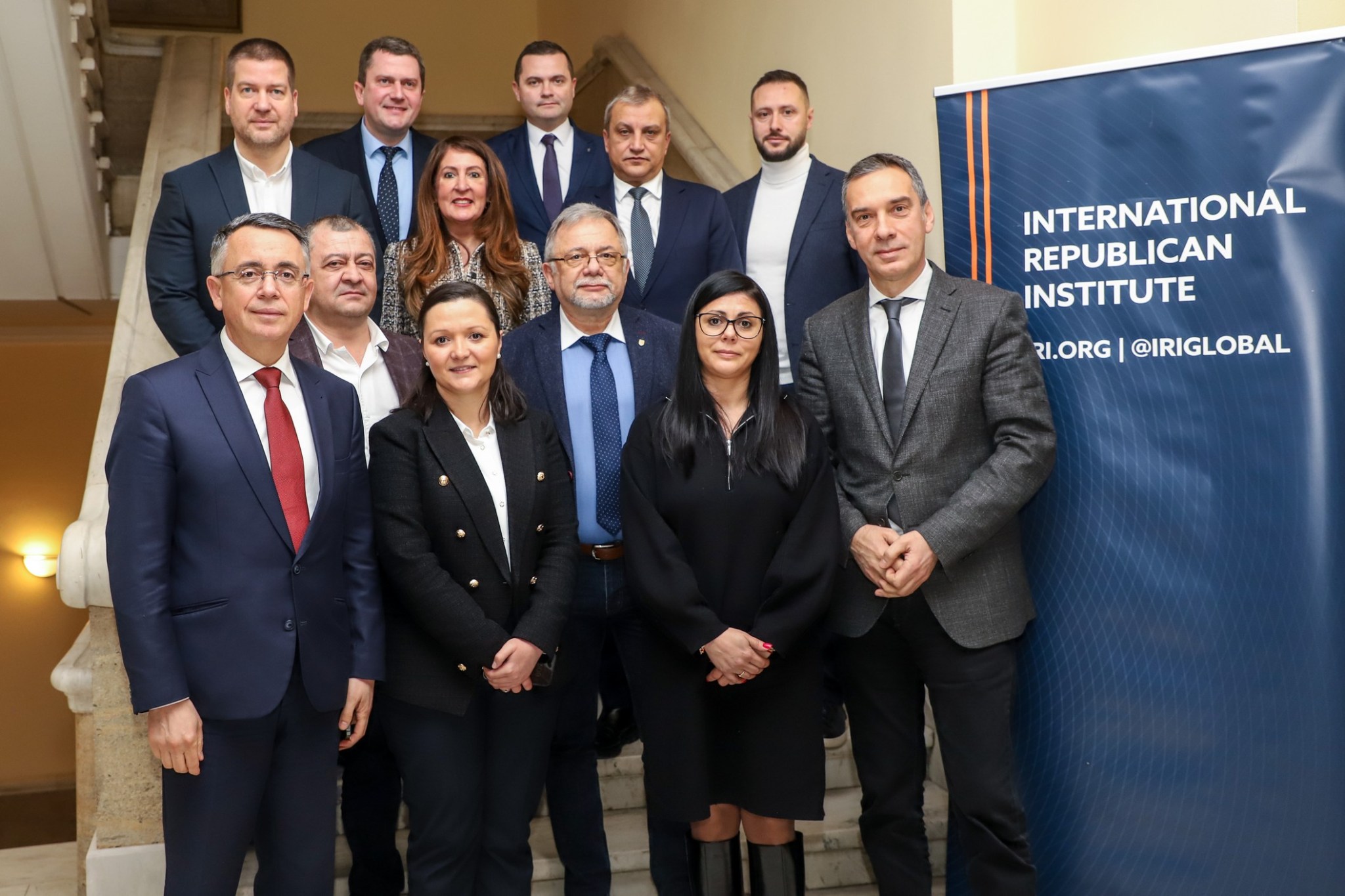
In June 2021, IRI launched its municipal anti-corruption program in 10 Bulgarian municipalities, and expanded its program to a second cohort of five municipalities in February 2023. Through the program, IRI uses analysis to provide a detailed understanding of where specific vulnerabilities lie through the Vulnerabilities to Corruption Approach (VCA) methodology. The program aims to build a consensus on those vulnerabilities among government and non-government leaders, through a municipal working group model. Working groups draft agendas of reforms to address identified vulnerabilities, which are then sent to mayors and municipal councils for consideration, adoption, and implementation. Along the way, IRI contributes to political will for reform by conducting public opinion polling on perceptions of corruption.
IRI also trains municipal administration officials and municipal councilors to communicate with citizens clearly and transparently, while also training civil society organizations how to advocate for further change. IRI’s national anti-corruption conference is a programmatic highlight, during which IRI gathers local and national Bulgarian political leaders and civil society organizations, along with peers in EU-member states, to discuss best practices in local government transparency, integrity, and citizen engagement. During the national anti-corruption conference in July 2022, mayors or their delegated officials from the program’s initial 10 municipalities signed IRI’s Municipal Anti-Corruption Pact. Leaders from the second cohort of five municipalities signed the Pact during a second iteration of the conference in February 2024.
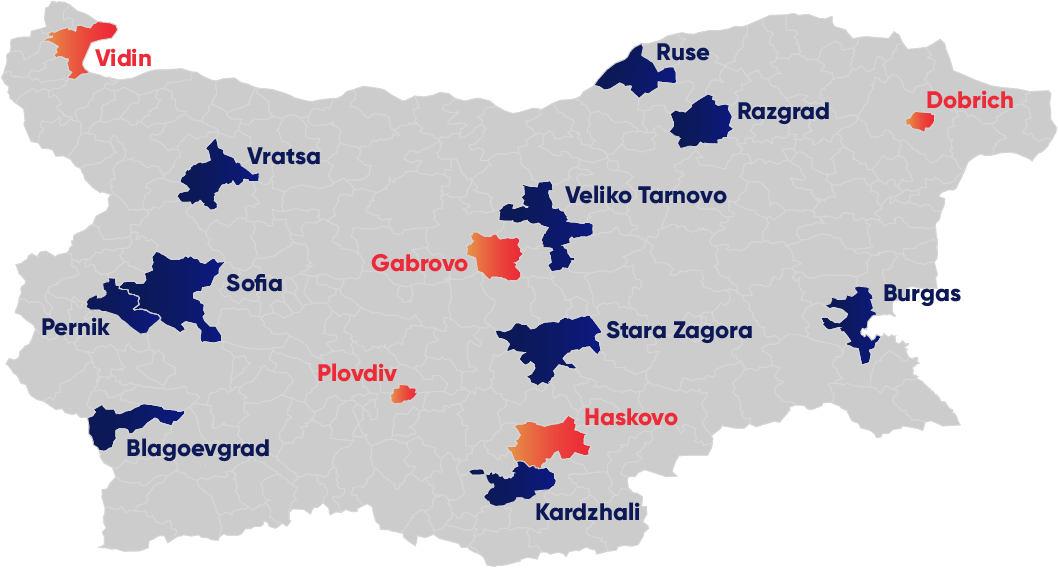
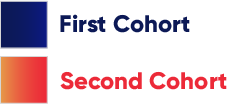
The Vulnerabilities to Corruption Approach and Assessment Reports
IRI’s Vulnerabilities to Corruption Approach (VCA) is a method for identifying vulnerabilities to corruption in a particular sector or institution that seeks buy-in from both government and non-governmental actors. The VCA has been implemented in countries across the world. The VCA assessment process includes conducting a political economy analysis through desk research; assessing vulnerabilities through interviews with government officials, civil society, and community leaders; establishing working groups comprised of government and civil society members; and presenting VCA reports to those working groups for validation and buy-in.
In Bulgaria, IRI deploys the VCA to identify vulnerabilities to corruption at the municipal level. VCA reports identify the key issues IRI then addresses through its municipal working groups. This approach ensures IRI’s programming is empirically based and locally tailored. IRI’s VCA assessments have been conducted in 10 Bulgaria municipalities in 2021-2022, and the second cohort of five municipalities in 2023. The selection of assessment locales reflected the diversity of Bulgarian municipalities in terms of population size, political preference, economic make-up, geographical location, ethnic composition. The set of municipalities under study encompass large cities and small towns, primarily urban and primarily rural districts, communities dependent on agriculture, industry, and services, and areas with above average concentrations of ethnic minorities.
The first stage of IRI’s VCA in Bulgaria consists of a political economy analysis to pre-emptively identify reform trajectories, windows of opportunity, and potential bottlenecks for reform. This analysis included country-level trends and factors, as well as municipal-level ones. The second stage of the VCA assessment consists of semi-structured interviews with key informants in each municipality. Interviewees were selected to represent a cross-section of public life in the municipality, and they included deputy mayors, senior administration officials, members of municipal councils, and members of civil society comprising NGO representatives, business association representatives, journalists, academics, activists, informal groups, and engaged citizens.
IRI has published two VCA assessment reports, with each report presenting vulnerabilities to corruption in a municipal cohort, with 15 municipalities assessed in total. In these reports, IRI outlines not only key problem statements and tailored recommendations for each municipality, but also cross-cutting vulnerabilities and recommendations from findings across the country.
The assessment reports establish a basis of findings and recommendations in each municipality from which IRI and the working groups develop reform proposals.
Polling Data
To further capture the current state of corruption, transparency, and citizen engagement in IRI’s program municipalities, IRI’s Center for Insights in Survey Research (CISR) conducts public opinion polling, measuring citizens perceptions of municipal corruption, transparency, citizen engagement, trust in municipal institutions, media independence, and other important issues. This polling has helped demonstrate citizen desire for improved government anti-corruption efforts, driving political will among municipal political leaders to adopt and implement reforms.
IRI conducted a set of representative polls in the first wave of 10 municipalities in February-March 2022, and a set of polls in the second cohort of five municipalities in September-October 2023. The polls found widespread concerns over corruption, a lack of enthusiasm for participation in local governance, and a diversity of views on issues across the municipalities that were surveyed.
The Anti-corruption Pact
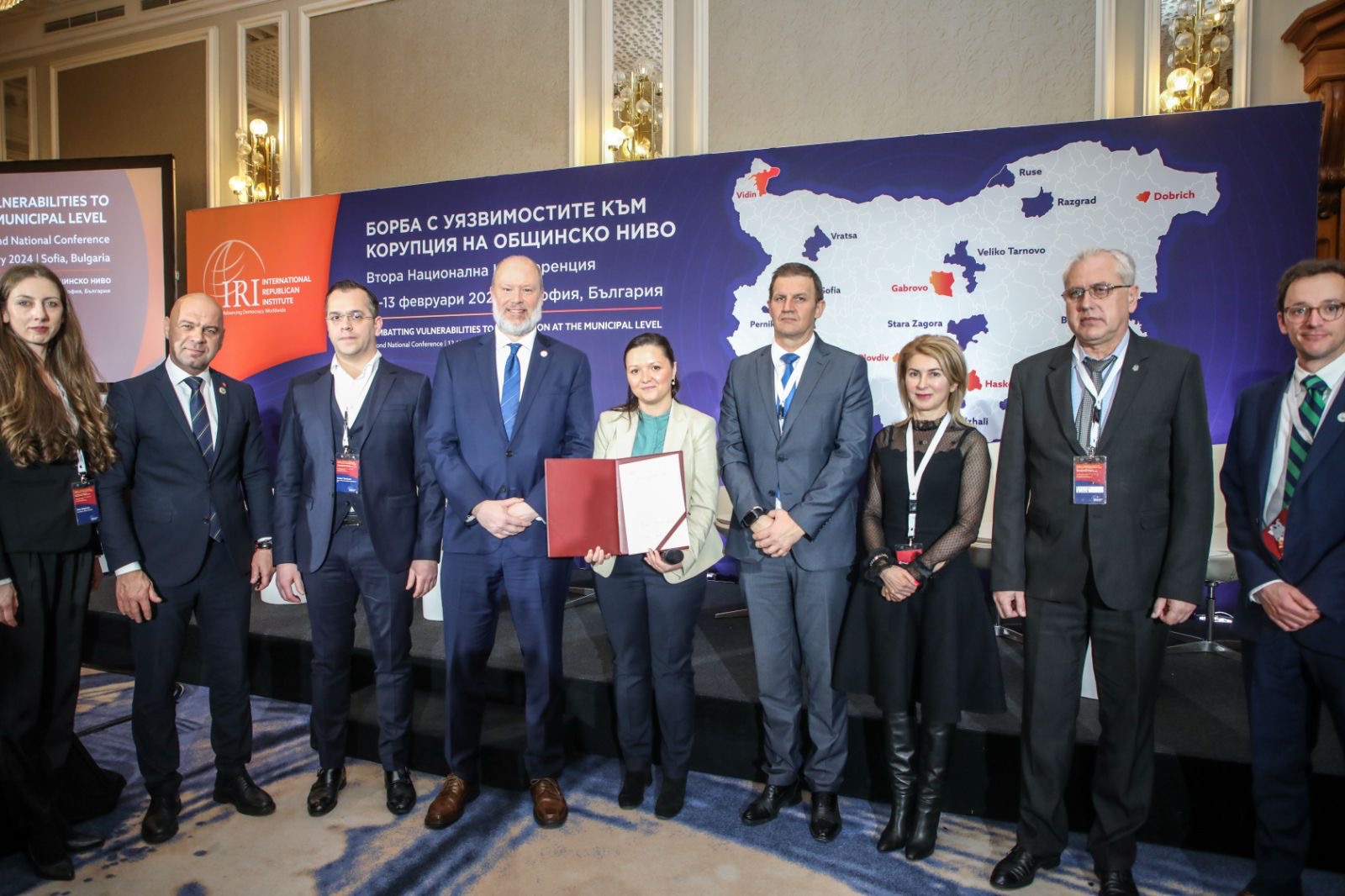
IRI’s Municipal Anti-corruption Pact presents a public commitment by each municipality’s political leaders to improve their municipality’s transparency, citizen engagement and anti-corruption mechanisms. The signing of the Pact also signals political support for the municipal working groups’ development of anti-corruption reform agendas.
During IRI’s national anti-corruption conference, “Combatting Vulnerabilities to Corruption at the Municipal Level,” on July 19-20, 2022, in the capital city of Sofia, the mayors and deputy mayors of the first wave of 10 municipalities participating in the IRI program signed the Municipal Anti-corruption Pact. Leaders of the second cohort of five municipalities joined them in signing the pact during the conference’s second iteration on February 12-13, 2024.
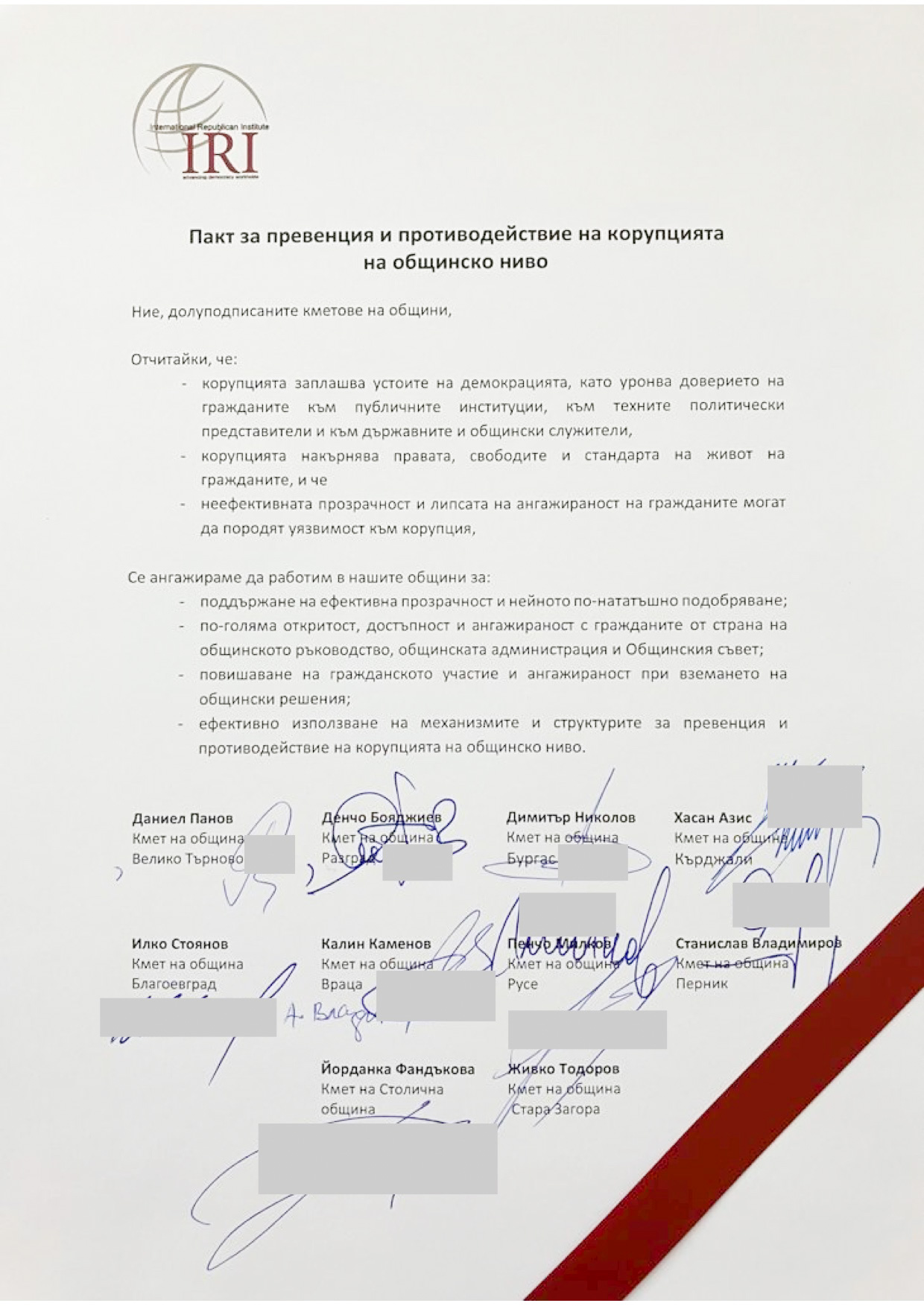
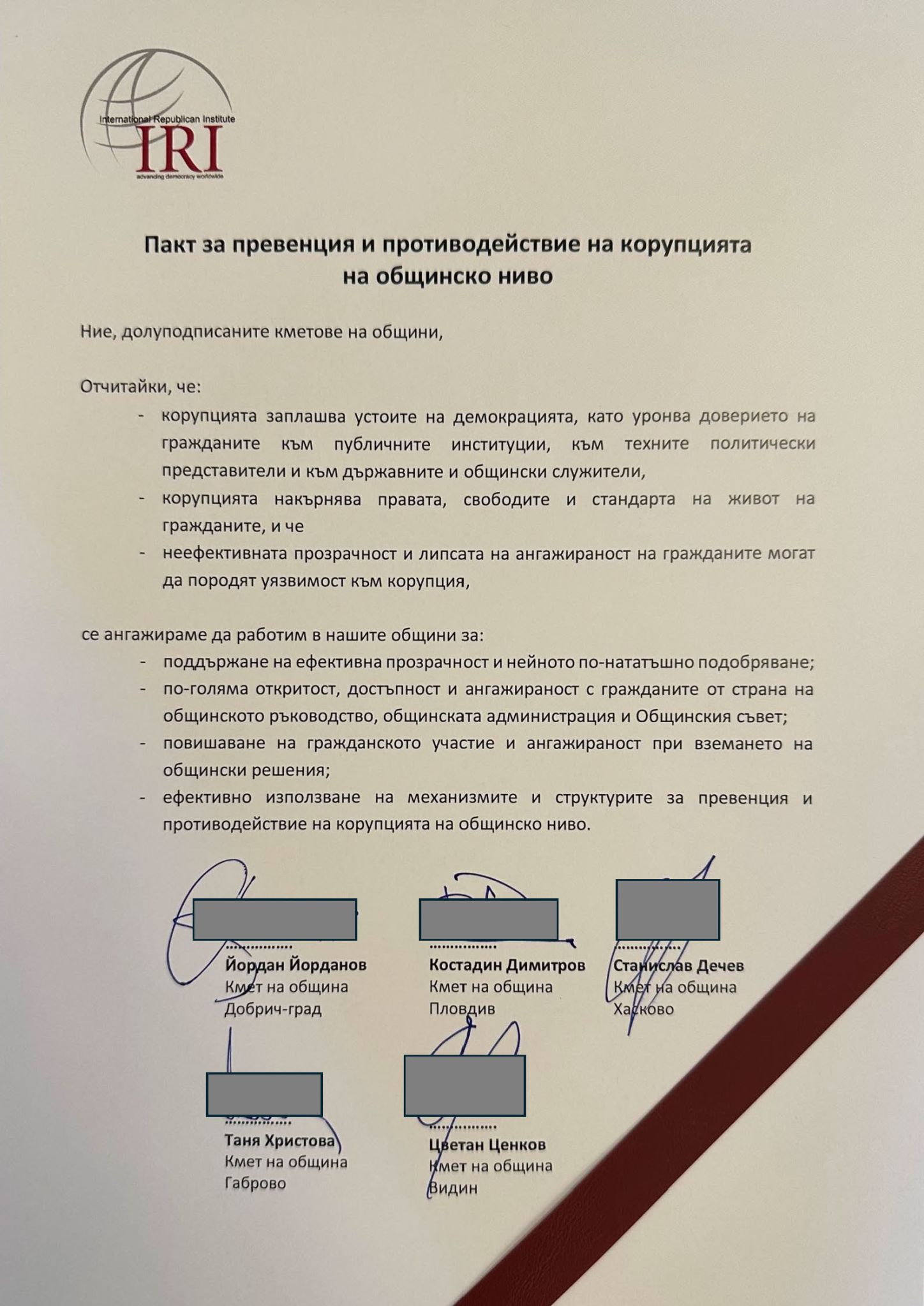
The Reform Agendas
With the support of IRI, municipal working groups, comprised of government and non-government representatives, design, and adopt anti-corruption reform agendas that are sent to the mayors for official adoption by municipal council decision. These reform agendas address vulnerabilities to corruption specified in IRI’s VCA reports.
Working groups in the first wave of 10 municipalities in 2022 developed reform agendas that IRI sent to mayors. Nine of the 10 municipalities have adopted the reform agendas by council decision. Below you can see the text of the adopted agendas:
Progress in Municipalities
-
First Municipal Cohort
-
VCA report
Published by IRI - Municipal Poll results published by IRI
- Municipality joined the Municipal Anti-corruption Pact
- Municipal Anti-corruption Reform Agenda developed and adopted by the respective municipal working group
- Municipal Anti-corruption Reform Agenda sent to mayor for consideration for official adoption
- Anti-corruption Reform Agenda adopted by the Municipal Council
- Anti-corruption Reform Agenda under implementation
-
Second Municipal Cohort
-
VCA report
Published by IRI - Municipal Poll results published by IRI
- Municipality joined the Municipal Anti-corruption Pact
- Municipal Anti-corruption Reform Agenda developed and adopted by the respective municipal working group
- Municipal Anti-corruption Reform Agenda sent to mayor for consideration for official adoption
- Anti-corruption Reform Agenda adopted by the Municipal Council
- Anti-corruption Reform Agenda under implementation
- Step Completed & Download Available | Step Completed
- Documents found in English above are unofficial translations of the originals in Bulgarian
Materials for Civil Society Organization (CSO) Capacity Building
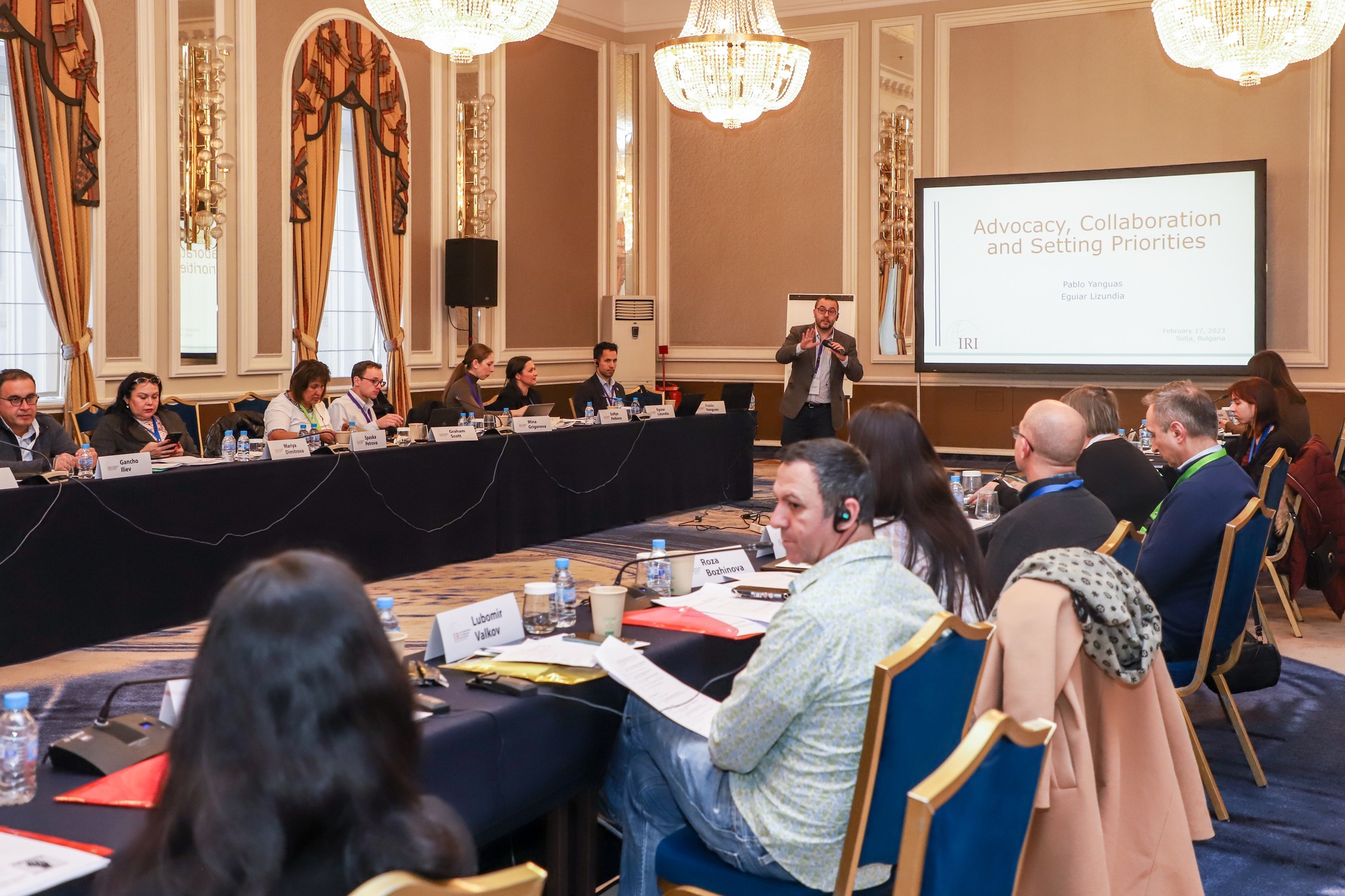
IRI recognizes the role civil society organizations can play in serving to hold governments accountable to political promises and as corruption watchdogs. Through its program, IRI strives to enhance the role CSOs play in implementing and monitoring anti-corruption reforms at the municipal level. IRI does this by bridging the communication between municipalities and CSOs through the inclusion of CSOs in municipal working groups. IRI also provides trainings, guidebooks, and networking opportunities for local organizations and activists.
Here you can find some of the resources IRI has provided to local organizations in Bulgaria: